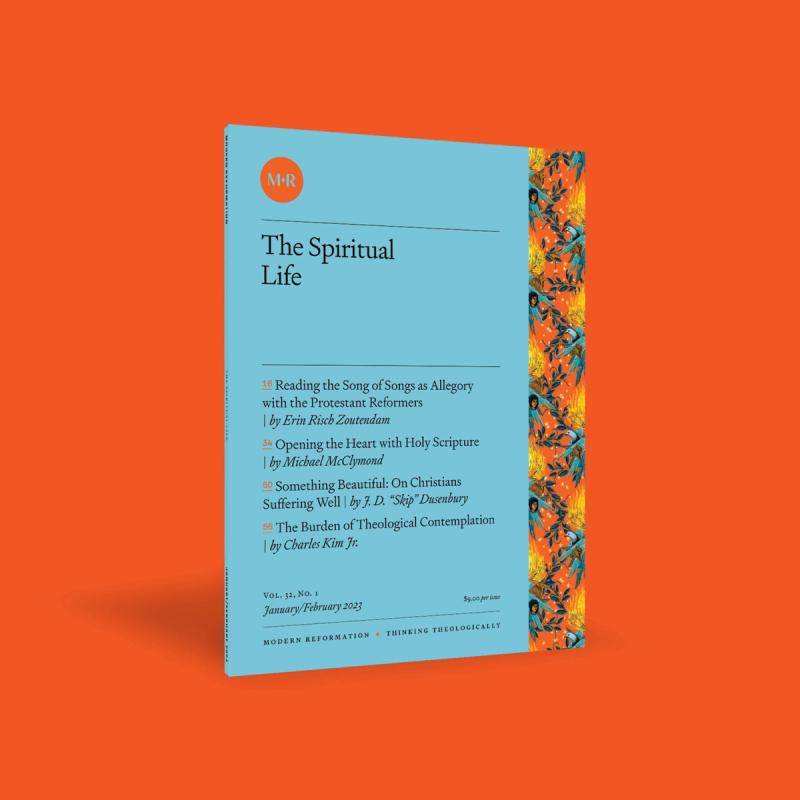I remember being introduced to the articulate and passionate gospel work of Modern Reformation and White Horse Inn while at college. It was a formative time for my faith, which I had only recently begun to take seriously. Michael Horton and crew helped me discover the beautiful truth of the reformational gospel—so much so that I wanted to keep digging deeper, resolving to go on to seminary and then to PhD studies in theology. But a funny thing happened as my studies took my family across the States and then across the Atlantic: the better I got at theology, the more I felt my inadequacy. Even now, the more I think I understand about God, the less I am convinced that I live up to what I know.
Why is so much of the Christian life lived between the twin poles of delight and despair? Caught in the middle, how do we cling to Christ and rely on his Spirit, trusting him to accomplish in us the slow and steady work of spiritual formation?
In this issue on the Christian spiritual life, our contributors help us wrestle with such questions. Some of that wrestling is indirect, such as Erin Risch Zoutendam’s historical exploration of the Reformers’ willingness to follow traditional allegorical readings of the Song of Songs. Her article invites us to connect the dots between the Reformers’ practice and our own common reluctance to embrace the Song’s richly figurative language for celebrating the spiritual love between our Bridegroom and his church. Other writers in this issue wrestle with contemporary spiritual life more directly, like Blake Adams, who interviews Kyle Hughes about the centrality of Christian education for spiritual formation.
MR is a magazine not for theology consumers but for theology practitioners, lay or professional. Like good surgeons, lawyers, electricians, or entrepreneurs, good theologians learn in order to do. We already have an abundance of doctrinal information for the tasks at hand, don’t we? Yet we desire theological insight and gospel encouragement to use our gifts as good stewards of God’s varied grace (1 Pet. 4:10).
As you read through this issue on the spiritual life, join me in committing to gaining humility and wisdom more than information and discernment rather than data. And be encouraged as I am that your identity as a Christian or even as a theologian is found in Jesus rather than in the imbalance between your theology and your spirituality. Indeed, focusing on him is the only way we’ll ever begin to tip those scales.
I never imagined that twenty years after being introduced to MR, I’d have the privilege of participating in its labors, which have borne much fruit in my own life and in so many others. May these labors and their fruits continue to increase by God’s grace.
Brannon Ellis Executive Editor







